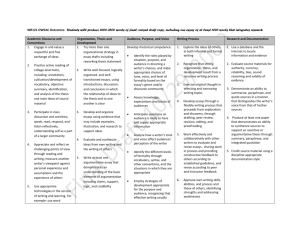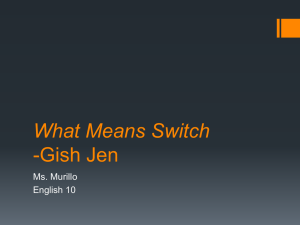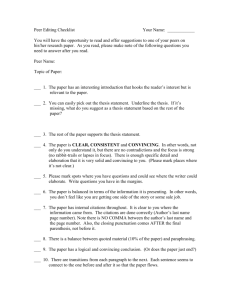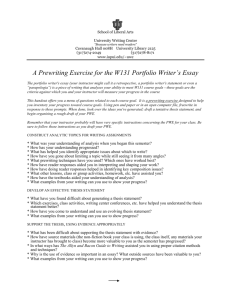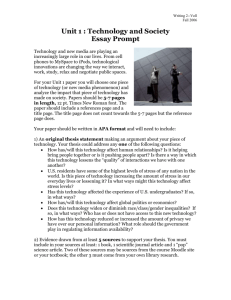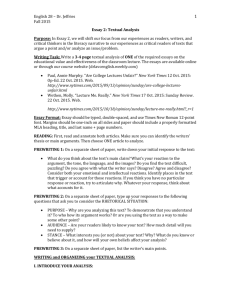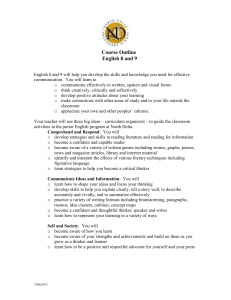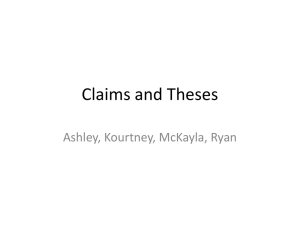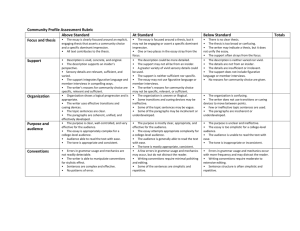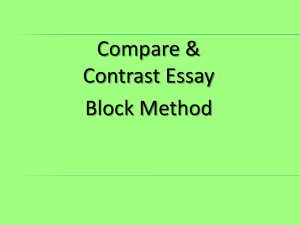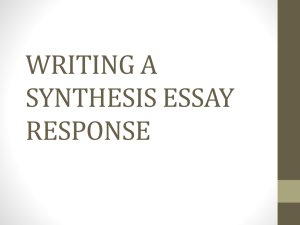The Confident Writer
advertisement
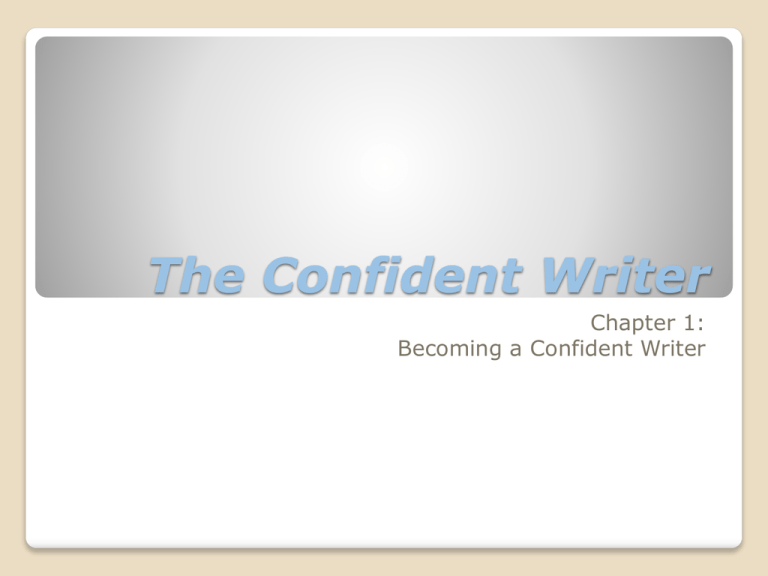
The Confident Writer Chapter 1: Becoming a Confident Writer 1. 2. 3. 4. 5. 6. Adjust your frame of mind. Schedule time for writing. Motivate yourself. Develop your powers of observation. Read. Get wired. How to Be a Confident Writer Reading & Writing ◦ Operate on two levels Literal level: words and what they say Critical level: words and what they suggest Essay ◦ A relatively short piece of writing that may serve one or more purposes: Inform, entertain, persuade, or express an idea, feeling, or impression The Reading & Writing Connection To Read an Essay ◦ Build background before reading ◦ Read actively ◦ Review after reading Reading enables us to explore ideas and develop our writing topics. The more good writing we read, the better our own writing becomes! The Reading & Writing Connection All of the following are important with writing and reading : ◦ ◦ ◦ ◦ ◦ ◦ ◦ Topic Purpose Audience Thesis (or central idea) Evidence Organizational Pattern Meaning Writing an Essay: The Basics Intro • Builds a reader’s interest, clarifies writer’s purpose, & provides background info of topic Thesis Statement • A sentence that states the writer’s opinion of the topic Support Conclusion • Evidence (main ideas & specific details) is presented to support & explain thesis • Provokes a response from readers Direction of Development Who will be your audience? Consider: age, roles, knowledge, assumptions, interests, values, & culture What will be your purpose? Determined why you want to write & what you want your audience to know What will be your thesis? What point are you making about your topic? A good thesis controls your selection of evidence. What evidence will support your thesis? Can include: facts, reasons, examples, opinions, and details How will you organize your evidence? In analysis, you present all sides of your argument and use an organizational pattern to present info. Make Good Choices for Writing • Readiness stage • Use prewriting strategies Drafting & Organizing • Exploratory Stage • Write a first draft • Revision stage • Improve your essay Prewriting Take Control of the Writing Process Rewriting Be a critical thinker! Be a creative thinker! •Critical thinking is unhurried, deep thinking. •Critical thinking is logical, analytical, purposeful, active, and self-reflective thinking. •Creative thinking is nonlinear and inventive. •“Think outside the box.” Find Your Voice Be a critical thinker! Be a creative thinker! • Find a purpose for writing. • Define your audience. • Write an outline. • Choose an organizational pattern. • Analyze your topic. • Choose a topic that challenges you. • Question your assumptions. • Write an engaging intro. • Imagine yourself as part of the audience. • Select words to create vivid images. • Take intellectual risks. Find Your Voice
